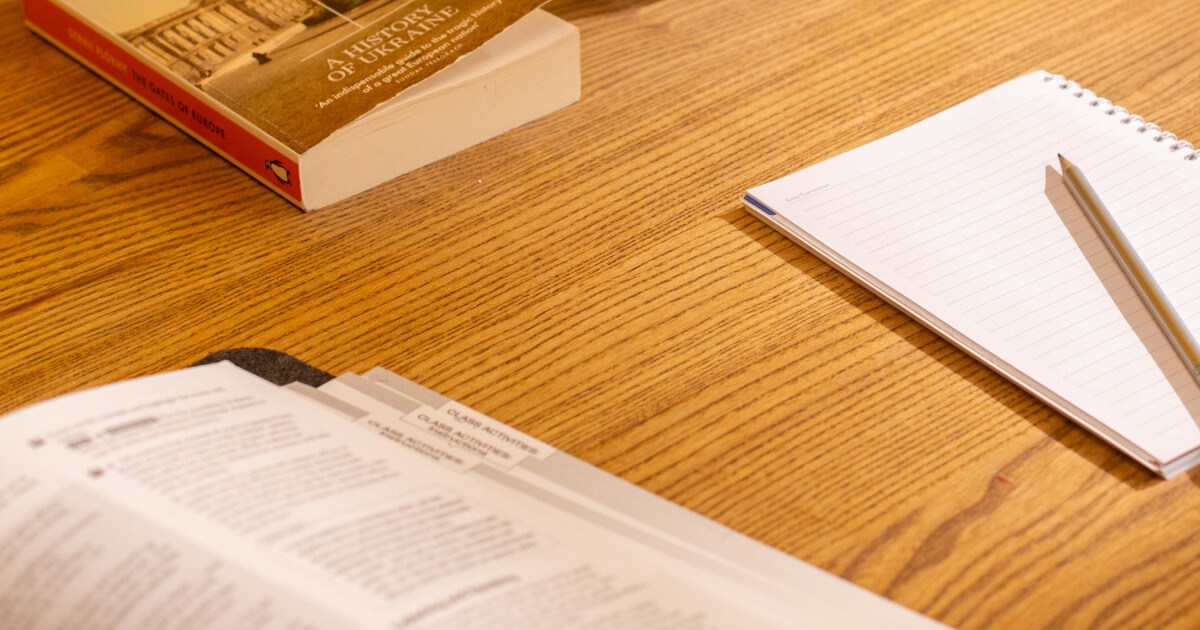Developing Critical Thinking in EFL Classroom
- Teaching qualifications
- Tips & Strategies
- Methodology

01.12.2023
Writing is one of the basic language skills. The ability to write confidently and fluently using certain grammatical structures and vocabulary gives a number of advantages such as the possibility of obtaining high scores in standardised tests like FCE, CAE, CPE, IELTS or TOEFL.
As a rule such exams include tasks on writing essays, letters, reports, etc.
Good writing skills allow students to express more complex ideas concisely and fully, thus, improving communication skills.

Teach CAE/CPE Writing confidently
Improve your writing instructionTeaching English definitely includes improving your students' writing skills. Fun and engaging tasks can become effective tools for mastering these skills. We have selected interesting low-prep activities that you can use in your lessons straight away.
Depending on the type of a task, you can do them:
Why do we need to teach writing?
In order to help your students get interested in writing, you need to understand why they don't like it. Most often, they consider writing tasks "difficult". What is "difficult", and why do they think so?
Writing essays or other types of texts is usually a requirement for formal examinations such as FCE, which teenagers often perceive as a stressful experience associated with failure. This is very demotivating. And this is also a reason not to like writing.
It is not easy to write even in your native language. Think about how often we have to write non-stop rambling prose in everyday life, especially when text messages and emails prompt us to write short texts. So it is not surprising that students hate voluminous writing tasks.

To create a really good text one needs to have different skills. Don't expect students to be able to write well right away. Your task is to break these skills into smaller ones and practise them separately. Football players practice goal kicks, dribbling, tactics, etc. They are not asked to just come to the match and play!
Here is what needs to be taught so that your students could write long texts skillfully:
Therefore, the tasks that we offer below are aimed at developing these skills.
You should reevaluate the role of writing
You can capture the imagination of young learners by introducing them to a fictional boy or girl of their age living in an exotic faraway land.
If your students are interested in a specific region or city, such as London, adjust your character's geographic location accordingly.
The easiest task is to write a short essay about yourself that will fit on a postcard for your new long-distance friend. You can even make your own cards in class.
This is a great opportunity to teach students basic openings and closings in English, which is a basic component of almost any form of writing.
While working at an elementary school in Thailand, I and my 8-year-old students made pen pals from France and Poland. My curious minds were incredibly excited about writing postcards because they wrote to real boys and girls from faraway countries, and we even went to the post office together to send those letters.
The children were most impressed when after a few weeks everyone received letters from their new friends.

Paraphrasing is the ability to quickly reproduce a sentence with a different grammatical structure and vocabulary, preserving the meaning and content of the original sentence.
This skill can be useful for adult learners who communicate with other English-speaking people. The practice of paraphrasing contributes to a better understanding of the nuances of language and the development of alternative ways of constructing sentences.
Give the students a sentence and then ask them to get the gist of the message and reconstruct the critical elements in the sentence using a different structure.
It is very interesting to have students paraphrase nursery rhymes, for example, Humpty Dumpty. Let’s look at the example from “How to teach writing like a pro” by Andrei Zakhareuski:
| Original text | Paraphrasing 1 | Paraphrasing 2 |
| Humpty Dumpty sat on a wall. Humpty Dumpty had a great fall. All the king's horses and all the king's men couldn't put humpty together again. | While sitting on a wall one day, an egg had an accident which resulted in tragedy because no one in the kingdom could repair him. | The kingdom mourned the loss of Humpty because he was broken beyond repair when he fell from the wall. |
Plan a writing lesson correctly!
Show students a picture of a busy street in a big city or a well-known landmark of historic architecture or topography – anything your students are likely to know well.
Write these questions on the board:
Who?
What?
Why?
When?
How?
Where?
How many?
Next, ask students to write their own descriptions of the pictures to answer the questions. Some of them may not be suitable – for example, the answer to the question "who?" may not be obvious in the desert island image. Encourage students to give creative, non-standard answers to this question and reward them with positive feedback.

Digital gadgets certainly provide access to social media that are a powerful tool for communication. This begs the question 'Why can't we use the power of social media to develop our students' writing skills?
Social media can be a tool for developing students' creativity together with personal expression, thus, improving and strengthening their writing skills. For example, you can blog with your students.
Twitter (now X) as a platform by its very nature requires users to be concise as it only allows them to write 140 characters. This way of communication provides students with an opportunity to practise brevity and clarity of expression. Using Twitter can help them get straight to the point without using unnecessary jargon in their letters, for example. Twitter can also encourage students to become empathetic, and considerate in their choice of words.
And here's how you can use TikTok, which is popular among teenagers, to develop writing skills. Watch the following video:
Give the students a text. It could be an email, a report, an article, or even a short story.
Remove a part from it, and students have to fill it in with the missing information. Of course, they will fully write what is missing. It is important not that the information be the time or day when something happened.
This task provokes students to use creative thinking, writing and grammar skills at the same time.
How to give constructive feedback on writing?
If it is difficult to get your students to write, you can start with a group exercise. Divide them into groups so they can work together and help each other.
Group story writing is a fun activity that your students should enjoy. All you need is an interesting picture that shows something funny and inspiring for each group. When you give them the picture, ask them to:
Ask students to take turns expressing ideas, and have one student in the group take notes. Once they have all the details, ask them to write a story based on the ideas they shared earlier.
Working in groups can be difficult, but if organised correctly, your students will enjoy working together.

In order to interest students, it is not necessary to ask them to write an essay on several pages. Exercises that seem simple at first glance can actually help them work harder and really boost their language skills.
In this task, students work individually. They have 10 minutes to come up with a story that should have an introduction, climax and ending. The main condition for writing is that the story must consist of exactly five sentences.
You can either suggest a topic or leave it entirely up to the students.
Students will find it challenging to summarise their entire idea in just five sentences and will need to apply all the language skills and knowledge they have. In addition, they will enjoy listening to each other's funny short stories and seeing how everyone did it.
As you can see, creative writing is important for the development of language skills. And the few exercises suggested above are sure to help you focus on the area of creative writing that your students need the most help with.
Do you use any special activities to develop your students' writing skills? Please, let us know in the comment sections, and don't hesitate to exchange the experience in face-to-face communication by joining our Grade University community.
Is paraphrasing beneficial for developing writing skills?
Yulia Chorna
Author
DELTA Module 1, CELTA certified teacher of General & Business English
Comments
Leave your comment